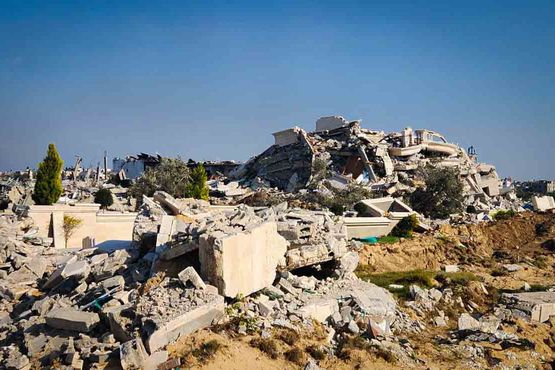Gaza: War Profiteering

© 2025 FdR
For those forced to flee Gaza City without their own transport, the price of escape can be extortionate. Families are asked to pay up to $2,000 for a place on a truck heading just 20 kilometers south to Deir al-Balah, in the middle of the Strip. That is one of the findings reported here by Faccia da Reporter, based on accounts from sources on the ground.
Once displaced, families face a second ordeal: the struggle to secure shelter. A tent—often their only option—can cost as much as $3,000. To pitch it, landowners in what are deemed “safer” areas such as Deir al-Balah, Az-Zawayda, or Khan Younis rent out small plots for at least $300 a month.
Those without money remain under the bombs in Gaza City.
The tents themselves have often been stolen. Local powerbrokers have seized humanitarian supplies, reselling them at inflated prices. The same networks are also accused of diverting food aid entering Gaza and putting it on the black market.
Landowners renting their parcels to displaced families typically belong to clans strong enough to impose their own rules—the rule of the strongest. Some families linked to Fatah (Palestinian National Athority) or Hamas still receive partial salaries or have NGO connections, which allow them easier access to tents and aid. The rest of the population is left to fend for itself—and to be exploited.
"This is our tragedy", tells a source. A tragedy within another tragedy.
’Gaza and its people have changed,’ says a woman, mother of five children and wife of a severely disabled man.
Hamas, once able to exert control, now appears incapable of intervening. Its police forces have been steadily crippled by Israeli strikes.
Sources interpret this descent into lawlessness as part of a deliberate Israeli strategy: to push Gaza into chaos and to set its residents against one another—a war among the desperate.
How should we read this? It is a pattern visible in every war: victims inflict suffering on other victims.
From afar, civilians are often seen through idealizing lenses, imagined as embodiments of innocence. But that strips them of their humanity—the humanity of remaining human even in wartime. The truth, hard as it is to bear, is the only way to understand: war exposes the full spectrum of human behavior, from acts of selfless solidarity to unrestrained cruelty.
This is what is happening once again in Gaza. And it would happen in Switzerland too, if war broke out tomorrow.
In an interview with CNN this week in Doha, senior Hamas figure Ghazi Hamad appeared to validate this reading. According to CNN’s account, Hamad said that provoking Israel’s disproportionate response, with its devastating toll on Palestinian lives, was “ both necessary and justified.” He added: “ I think this is a golden moment for the world to change the history.” (Video HERE).
The conclusion is stark: Gaza today is the stage for a clash of two apocalyptic visions of reality and of the Israeli-Palestinian conflict, each feeding on the existence of the other.
The vision of a future sovereign Palestinian state, and that of an Israel living in peace and security with its neighbors, remain the rhetoric of leaders on both sides. But the operational reality is another: blood calls for blood. On both sides of this disaster.
(gianluca grossi)




